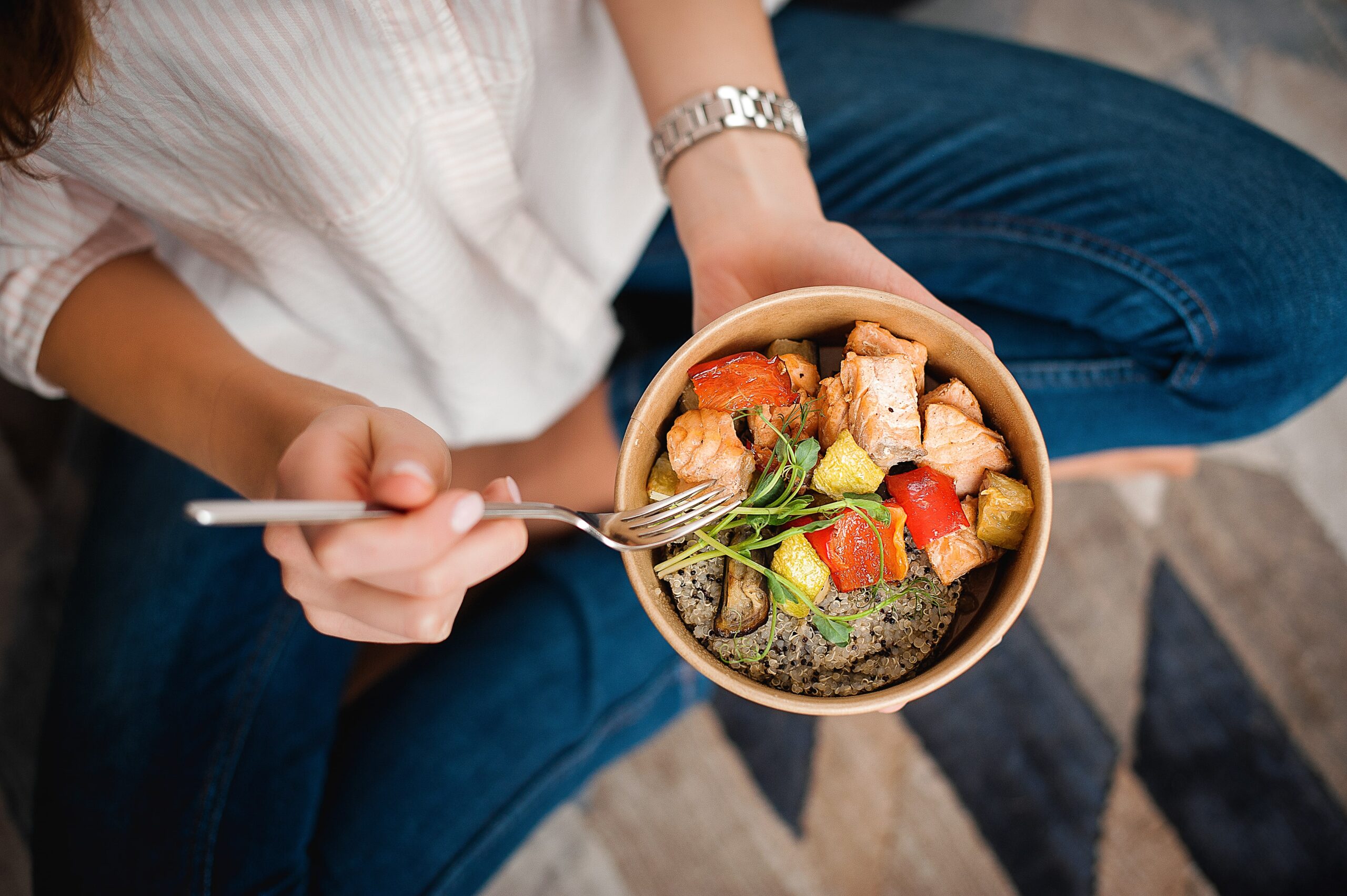If you’re relatively new to the world of intuitive eating and don’t know where to get started, Embody Health London is the place to be.
You may have just recently learned about intuitive eating as a concept but aren’t yet fully confident in trying it out for yourself. If this is the case, we will guide you so that you too can become an intuitive eater!
This blog post will discuss the sorts of foods that people who eat intuitively may eat, as well as a few top tips for what to do if you are considering becoming an intuitive eater yourself.
What are the benefits of being an intuitive eater?
Intuitive eating is something which, arguably, doesn’t really have any drawbacks! This evidence-based framework is centered around food and body autonomy; allowing you to prioritise your own wellbeing and personalise the way you approach food – in a way that feels good for YOU!
One of the main benefits of eating intuitively is that it has been shown to reduce the risk of disordered eating behaviour, as well as contribute towards improved psychological wellbeing, something which has been well demonstrated across many recent studies.
In fact, one group of researchers found that people who ate intuitively displayed lower depressive symptoms, higher self-esteem and a 74% decreased chance of engaging in binge eating when compared to the control group1.
Furthermore, a 2014 study found that those who eat intuitively are better able to maintain their weight, have lower cholesterol, and lower blood pressure than those who were not intuitive eaters2.
Overall, the research points to one key theme: intuitive eating improves your health – not only your physical health, but mental wellbeing too!
Which foods are included in intuitive eating?
To cut to the chase… Anything you like!
Following your intuition when it comes to eating is all about letting yourself be free to enjoy whichever foods you want, and not cutting anything out unnecessarily or restricting. If you are aiming for balance, variety and flexibility, then it’s not important which exact foods you do or don’t eat.
As we like to say at Embody Health London, all foods fit!
This could include a variety of wholegrains, beans, pulses, nuts, protein sources, dairy, unsaturated fats, fruits, vegetables and, most importantly, “fun foods”!
Basically, if you want that chocolate bar, go for it – nothing is off limits when it comes to honouring your physical, emotional, and psychological wellbeing!
Our top 3 tips for eating intuitively:
1. Forget diet culture
Unfortunately, society is still infatuated with new dieting trends hitting the market every other week. Fads which will try to tell you what you are “supposed” to eat in order to look a certain way.
Whether that’s intermittent fasting or keto, the Atkins or the carnivore diet, there’s always something new telling us what we can and can’t eat. Well, we’re here to tell you to ditch the diets and follow your intuition instead!
Societal standards for eating and drinking will, more often than not, just create feelings of fear, shame and judgement surrounding certain foods. Intuitive eating is all about food freedom and feeling good when you eat, not being ashamed.
After all, meals should be a source of pleasure, not guilt!
2. Trust your gut
Intuitive eating means listening in to your body’s signals and honouring them with no restriction. Our bodies are highly intelligent, and if they are telling us we are hungry, that usually means it’s a good time to eat!
If you are craving a certain food, this can sometimes mean that your body needs more of a specific type of nutrients. No only this, but our hunger signals are important! When we try to ignore or repress these feelings, it can just lead us into an unhealthy cycle of restriction and, in some cases, bingeing.
Maybe it’s worth believing in our “gut instincts” after all…
3. Have fun with it!
When you eat intuitively, all foods can become “fun foods”. Play around with things you like, or maybe even try new things that you once thought you would never like. The key to intuitive eating is to not limit yourself!
Here at Embody Health London, we specialise in intuitive eating, ditching dieting and smashing the stigma engrained in our society. If you’re interested in nurturing your relationship with food and your body, our 1:1 coaching could be a good place to start!
Get in touch with us now at [email protected] to start your intuitive eating journey today.
EHL Team x
Robin Wileman, EHL student dietitian intern
References
1 Hazzard, V. M., Telke, S. E., Simone, M., Anderson, L. M., Larson, N. I., & Neumark-Sztainer, D. (2020). Intuitive eating longitudinally predicts better psychological health and lower use of disordered eating behaviors: findings from EAT 2010–2018. Eating and Weight Disorders – Studies on Anorexia, Bulimia and Obesity, 26(1), 287–294. https://doi.org/10.1007/s40519-020-00852-4
2 Van Dyke, N., & Drinkwater, E. (2014). Relationships between intuitive eating and health indicators: literature review. Public Health Nutrition, 17(8), 1757–1766. https://doi.org/10.1017/S1368980013002139

